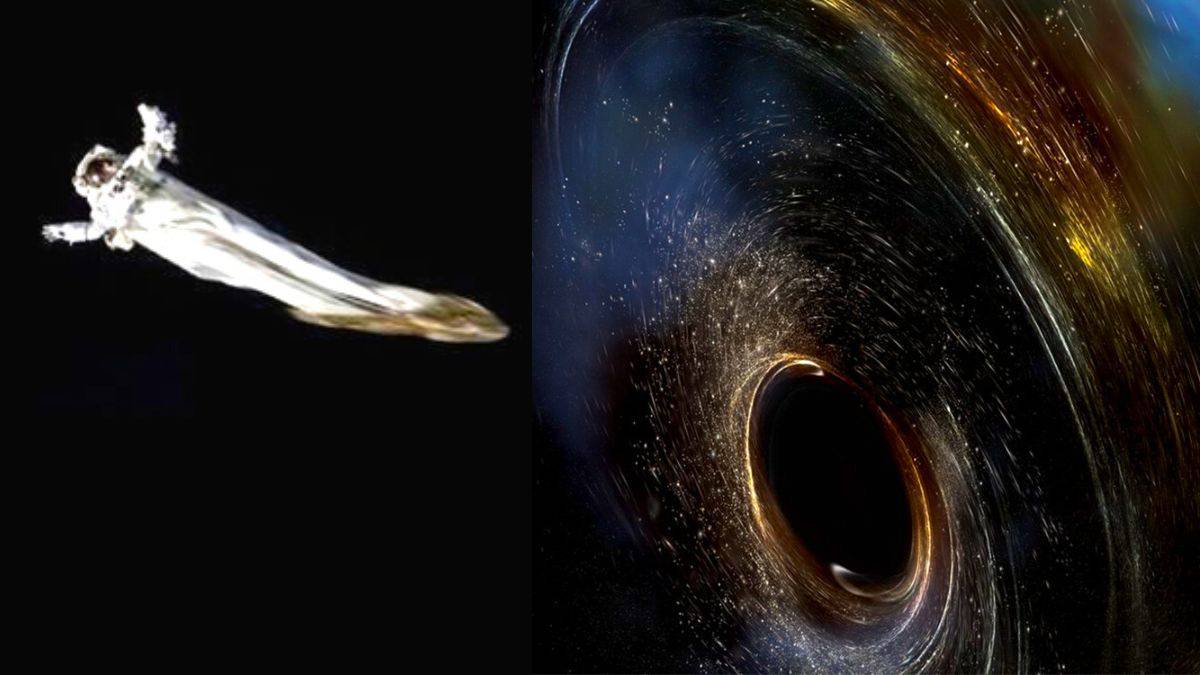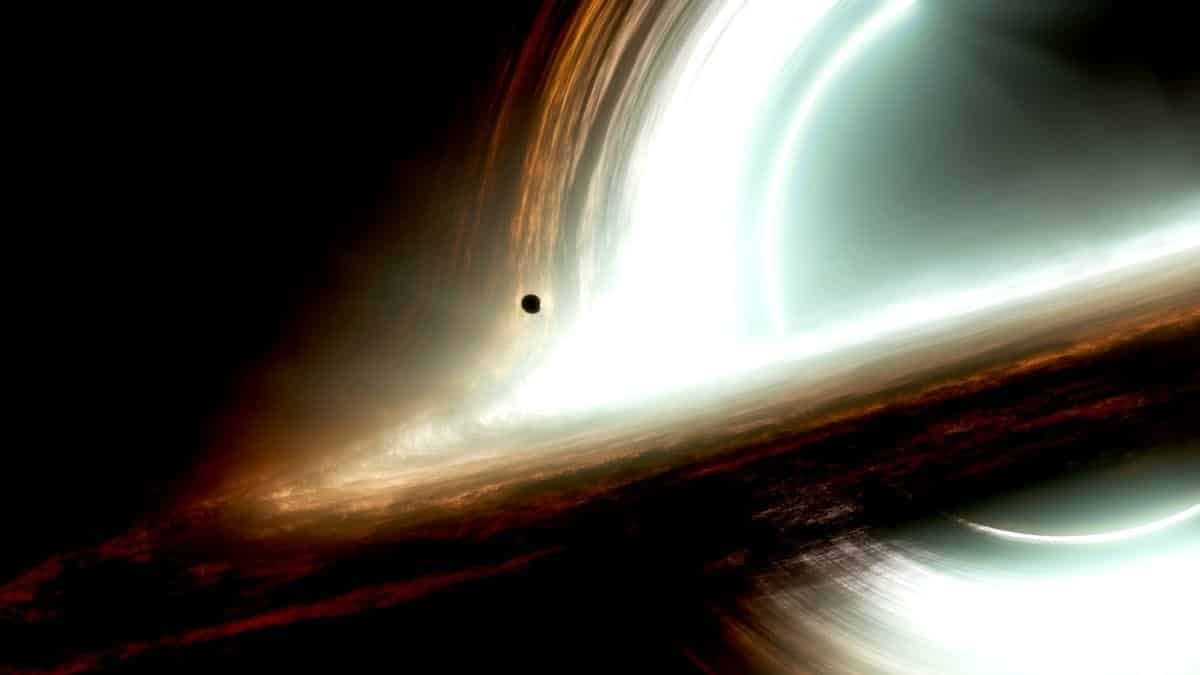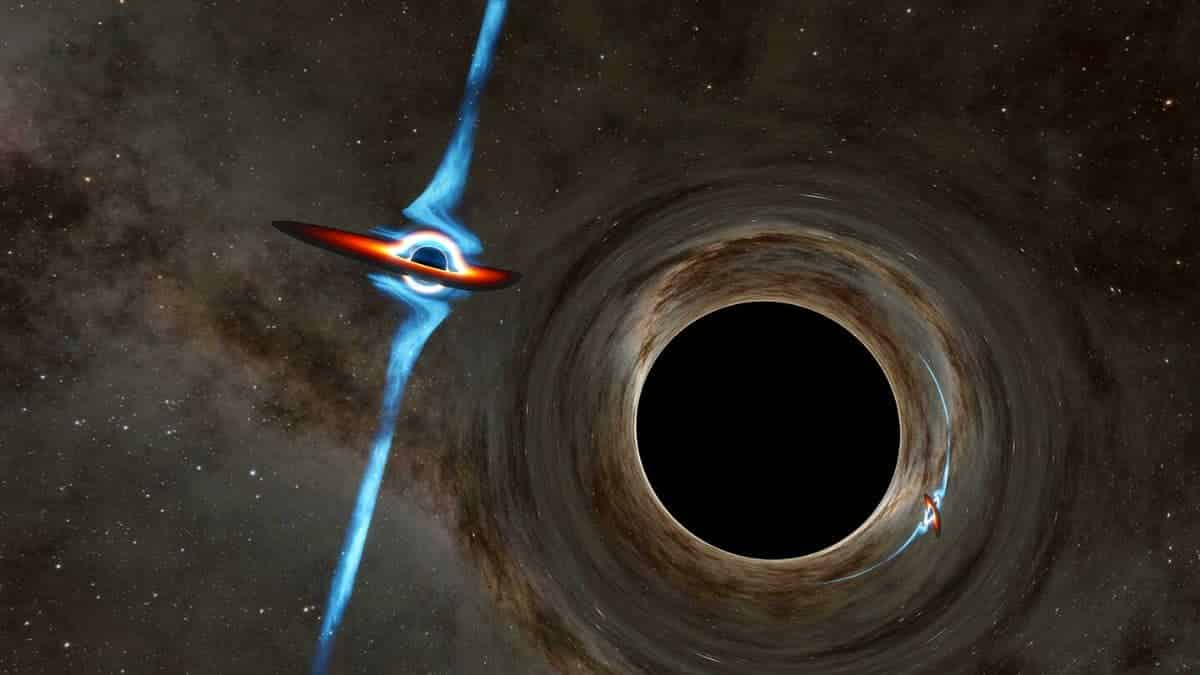Can You Survive Entering A Black Hole? Let’s Check Out

The black hole is the most fascinating matter in space with a gravitational field so strong that even light can not escape it. Blackhole is first predicted by Einstein’s theory of relativity which states a massive star dies leaving its core behind. The core contains more than three times the mass of the Sun. This immense mass concentration creates an extreme gravitational pull that forces all matter to itself and produces a black hole.
Black holes can not be observed with telescopes that are used to detect x-rays, light, or other forms of electromagnetic radiation because it doesn’t produce any light. However, black holes can be detected by studying their effects on other matters. As you’ve seen in the movie Interstellar (2014) by Christopher Nolan, a black hole named Gargantua is eating away a part of Miller’s planet. Its gravitational pull is so strong that the Miller’s planet dramatically bends in its presence. Similarly, a black hole passing through a cloud of matter pulls them inward with a process known as acceleration. As the matter which is getting pulled accelerates it heats up and emits x-rays. These x-rays radiate into space and can be detected by the telescope.

So, how strong is this gravitational pull of a back hole? Can humans survive it?
You don’t have to plunge into a black hole to find these answers. Let us dive into the possible answers to the question that is lurking in your mind.
Black holes are known for the extreme gravitational pull which is about 1.6 trillion gravitational acceleration. But more than the gravitational pull the interesting factor is there are two types of black holes. One is electrically neutral, does not rotate, and has a mass similar to the Sun called stellar-size black holes. The second type is a supermassive black hole with a mass billion times greater than the Sun.
Both of these black holes have a center and the distance from their center is called the event horizon which has a measurement of radial distance. The event horizon of a black hole is the point of no return anything that passes through it can be swallowed into the mass because this point of no return has a massive gravitational pull.
The radial size of the event horizon differs for different types of black holes. The stellar-size black holes having a mass similar to the Sun will have an event horizon with 2 miles of radius. But the supermassive black hole with 4 million solar masses will have an event horizon with 7.3 million miles of radii.

Now, if you fall into one of that stellar size black holes with your feet, as you’ll reach closer to the event horizon you will feel more pull on your feet than your head because the center is much closer. In that case, the black hole’s pull can differ depending on how close the matter is to the event horizon. Assistant Professors of Physics from Grinnell College say “The black hole’s gravitational pull will be exponentially more on your feet than your head. The black hole’s pull on a person will differ by a factor of 1,000 billion times between head and toe depending on which is leading the free fall.” You may feel a spaghettification of your body and you will become much like noodle shaped. If you can survive this stress then you are good to go.
And if you fall into one of the supermassive black holes you will feel no difference in gravitational pull on your head to toe. In that case, of supermassive black holes, the event horizon is farther away from the central gravitational field. So, the person can survive through the event horizon being unaffected or not being noddle shaped. But you will not be able to see out from the inside and no one will be able to see you or rescue you since the light can not even escape the black hole’s pull. You might even experience an indefinite fall.
Thus, in both ways, things might not be good for you. Of course, you don’t want your body to be turned into a ‘maggie’ noodle neither you wanna fall forever within a never-ending vacuum. So, we suggest don’t look around for a black hole in space. Stay on Earth and keep it clean.


